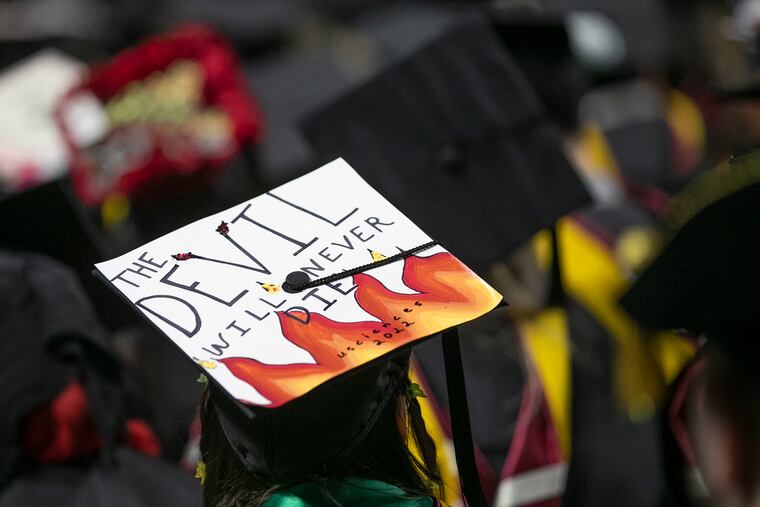Why I’m resigning from the board at USciences | Expert Opinion
I cannot reconcile my medical ethics with the university's decision to stop providing contraception and family planning services to students.

I’ve been a member of the external advisory board at the University of the Sciences in Philadelphia for four years. During that time, I’ve advised the board on a variety of strategic issues including student enrollment, course development, industry and clinical partnership development, as well as helping students find internships and employment.
But I am resigning over the USciences merger with St. Joseph’s University.
I have no objection to the merger itself — in 2020, the USciences president told the board that the merger was one of the few options for the university to survive financially. I am a USciences alumnus, so this news was sad, but the merger seemed necessary.
My dilemma arose when I learned of the decision to conform to the protocol of St. Joe’s, a Catholic university, and discontinue providing contraception or any sexual health advice to the student body. Issues regarding family planning and contraception, apparently, will be redirected to the student’s off-campus primary health-care provider.
This concerns me. It feels like USciences is becoming St. Joe’s, not merging with it.
» READ MORE: New anti-birth control policy at USciences is unfair to students who didn’t choose a religious college
As a physician, I believe that — at its core — family planning and contraception should be centered between the student and their partner, not between the student and a health-care provider. While necessary, the role of the health-care provider should be, in my opinion, merely to provide a means to help students carry out those private decisions, whether it means providing contraception or education about sexual health and wellness.
I understand that St. Joe’s follows a different policy. Sending students off campus for contraception or sexual health education may sidestep this thorny issue, but it does a disservice to the student body, especially to the many USciences students who did not have a voice to object to the merger and becoming a part of a religious university. While I fully respect all faiths and religions and the differing beliefs held by them, from a justice and fairness point of view, I believe that current students at the University City campus should continue to have access to basic sexual wellness education and contraceptive methods on campus, at least on a phased-out basis over the next few years.
The USciences students made a free, conscious, and deliberate choice to matriculate at a nonsectarian institution. The merger and the ensuing governing belief system on sexual health, unfortunately, was not their choice.
“I cannot reconcile my medical ethics with the decision that has been made by the university.”
More broadly, I believe that sexual wellness education and contraception are very basic human health services, and taking that away from the campus health center places an undue burden on the students.
Many students came to USciences from far out of state. Without the availability of on-campus access, the extra burden of scheduling a nonemergency appointment to see a new doctor can be daunting during a busy semester. When can they go? The little time they have between classes? Many don’t have cars, so how will they get there? Will there be a shuttle provided by the university or public transportation?
From a logistical point of view, the university should be the students’ health-care provider and take on the role of sexual education and wellness.
To illustrate this disparity more poignantly: Why is it OK to talk about sexual assault on campus, but it is not OK to talk about sexual wellness?
I understand that these are difficult issues, but as a physician practicing medicine in the 21st century, I cannot reconcile my medical ethics with the decision that has been made by the university.
So, I am leaving my position on the board at USciences. It has been an honor and privilege to have worked with such a dedicated and talented team. I wish everyone at USciences all the best on this journey as it merges with St. Joseph’s University. But I will not be a part of it going forward.
William Ding is a radiation oncologist at New Jersey Urology.